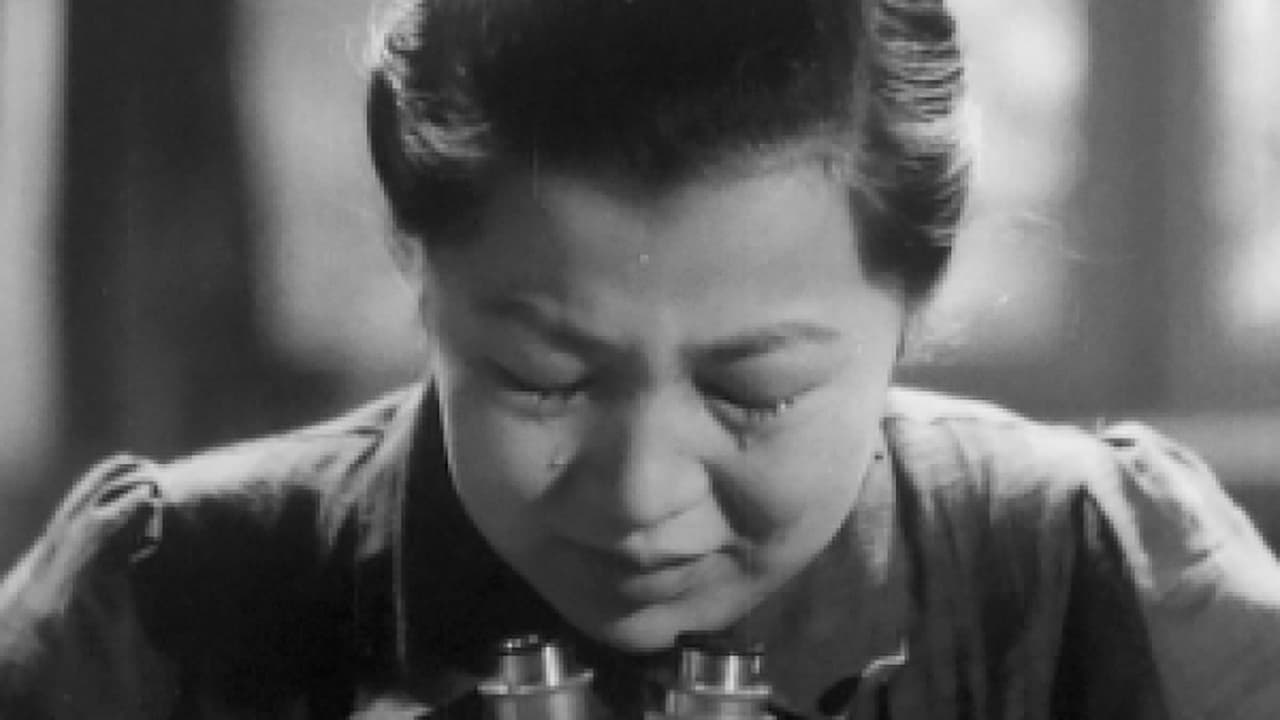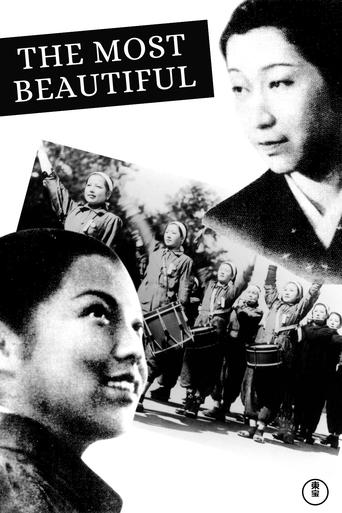WasAnnon
Slow pace in the most part of the movie.
Voxitype
Good films always raise compelling questions, whether the format is fiction or documentary fact.
Aneesa Wardle
The story, direction, characters, and writing/dialogue is akin to taking a tranquilizer shot to the neck, but everything else was so well done.
Leofwine_draca
THE MOST BEAUTIFUL is a WW2 propaganda movie from Japan. It has few redeeming values apart from a level of realism you don't normally see in such productions, but the story is very slight and the events depicted are so slowly-paced as to make it a chore to sit through. The story follows a group of female workers at a factory making periscopes, and it narrows in on a handful of characters as they encounter conflict and personal struggle in their bid to do their best for their country. Sentimental stuff, then, but with more grit than syrup. This is only of interest for the presence of director Akira Kurosawa, forced to do his bit for the war cause, but compared to Hitchcock's rival wartime propaganda, this is low key and relatively uninteresting.
Claudio Carvalho
During the World War II, the management of a war industry of optical instruments for weapons requests an effort from the workers to increase the productivity during four months. The target for male workers is an increase of 100% of the production, but the female workers, led by the dedicated Tsuru Watanabe (Yôko Yaguchi), ask the direction to surpass their goal from 50% to 70%. Along the period, the women have to overcome illness and their personal problems to complete their quote. "Ichiban Utsukushiku" is a war propaganda and tribute to the Japanese female workers in times of war by Akira Kurosawa recommended only for fans of this great director. The plot is boring in many moments, but I liked to see the humanization of the nationalist Japanese workers and this unusual perspective from a people that were sooner defeated in the war. The winners usually write the history from their perspective and this film is a rare testimony from the Japanese point of view. Watanabe is an enlightened character with her dedication and positive leadership. My vote is six.Title (Brazil): "A Mais Bela" ("The Most Beautiful")
max von meyerling
The best propaganda movie ever made. Every element of Japanese artfulness has gone into this picture. The finest in visual composition and dramatic exposition have both been harnessed to create this film, but it is not art but propaganda. It's impossible not to regard this film without realizing that this was meant to manipulate the population to suffer and sacrifice in order for the war machine to fight, kill and conquer. Compare Ichiban Utsukushiku to the German Jew Suss or the un-released Titanic or the American Hangmen Also Die or Mrs. Miniver or any of the combat films made by the waring nations and they are dreadfully crude by comparison. Maybe it can only be approached by something like Minnelli's The Clock for overall design concept and subtlety of purpose. Then again The Clock isn't full blown propaganda like Kurosawa's Ichiban Utsukushiku. How could the director, Kurosawa, (it was his second credited film) not become the great International master he became?
bymarkclark.com
Like SANSHIRO SUGATA PART 2, this film was never released in the U.S. for political reasons. There's not any blatantly anti-American content, as in SSP2, but THE MOST BEAUTIFUL, filmed by government request, was a pro-Imperialist propaganda document.Kurosawa gamely attempts to weave together a story which functions both as propaganda and as a tender coming-of-age story, but isn't entirely successful. This would have been a demanding proposition even for a seasoned pro, let alone a young director like Kurosawa, directing only his second feature.The story follows a group of young girls working in an armaments factory in the latter days of WWII. The girls must increase production sharply. The girls suffer hardships of all sorts. One, Tao, emerges as the leader of the group. Through the travails of helping her coworkers meet their quotas, Tao learns courage, fortitude and compassion.If all this sounds a little boring, that's because it is. Kurosawa's visual signatures are seldom seen. At least the performances are good, especially Yoko Yaguchi as Tao. Takashi Shimura has a thankless, do-nothing role as the foreman of the factory.

